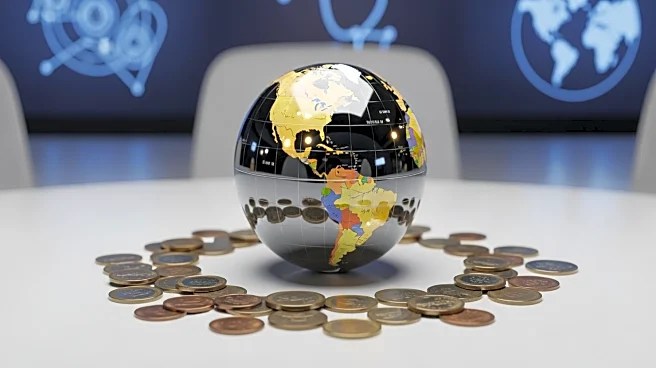What's Happening?
The Group of Seven (G7), an intergovernmental organization comprising the world's largest developed economies, has evolved significantly since its inception in 1975. Originally focused on macroeconomic
policy, trade, monetary policy, global North-South relations, and energy, the G7 has expanded its agenda to include a wide range of global issues such as foreign policy, climate change, and development. The G7's relatively small membership allows for efficient consensus-building, making it a vital forum for dialogue and cooperation among member states. Recent summits have reflected this broader mandate, with initiatives like the Build Back Better World (B3W) aiming to address global infrastructure needs and counter China's Belt and Road initiative.
Why It's Important?
The G7's ability to adapt and address a wide array of global challenges underscores its significance in international governance. Its small size compared to larger groups like the G20 allows for more agile decision-making and consensus-building, which is crucial in addressing urgent global issues. The G7's initiatives, such as the B3W, demonstrate its potential to influence global economic and political landscapes, offering alternatives to other major global projects. However, the G7 faces criticism for being unrepresentative of the broader international community, highlighting the need for inclusive global governance structures.
What's Next?
The G7 continues to play a pivotal role in shaping global policies, with upcoming summits expected to further address pressing issues such as climate change, economic recovery, and geopolitical tensions. The group's ability to coordinate policies ahead of larger multilateral meetings like the G20 and COP provides a strategic advantage in influencing global agendas. As the G7 navigates its role in a rapidly changing world, its focus on building consensus and fostering cooperation will be crucial in maintaining its relevance and effectiveness.
Beyond the Headlines
The G7's evolution reflects broader shifts in global governance, where traditional Western-led institutions must adapt to a multipolar world. The rise of the G20 and other international forums challenges the G7's position, prompting discussions on its role and effectiveness in addressing global issues. The G7's historical context and established relationships among member states provide a foundation for continued influence, but its future will depend on its ability to engage with emerging economies and address criticisms of exclusivity.










